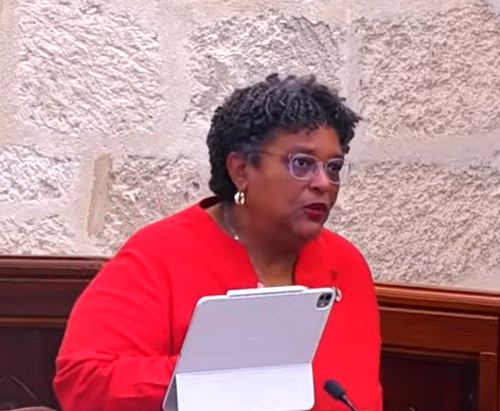In the wake of a recent court ruling on a constitutional breach arising from a judge’s delay in giving a decision, University of the West Indies law lecturer Dr Ronnie Yearwood is calling for sweeping reforms to Barbados’ judicial system, warning that current legal mechanisms leave citizens vulnerable and constitutional protections “toothless”.
The case in question, Kymmia Mottley v Attorney General of Barbados, was presided over by Justice Patrick Wells, who ruled that while the Chief Justice holds discretionary authority under Section 84(5) of the Constitution to initiate the removal of a judge, that discretion remains intact even in instances where a judge breaches the six-month threshold for delivering decisions as set out in Section 84(3)(c).
Justice Wells concluded that the delay amounted to a violation of Mottley’s constitutional rights.
Nevertheless, he maintained that the Chief Justice was not bound to act, stating: “The point here is not that the timeline set out in Section 84(3) of the Constitution is not to be obeyed by judges . . . [but] the Honourable Chief Justice was not bound or required by Subsection 84(5) . . . to consult and advise, but that it was discretionary.”
Last week, Attorney General Dale Marshall told the MIDWEEK NATION he was satisfied with the judge’s analysis and application of the law.
He said the law allows the Chief Justice to exercise his discretion, “but even without the amendment in relation to delays, if that amendment had not been made . . . even in those circumstances, a Chief Justice would still have had to consider the facts presented and in his discretion determine whether the alleged misconduct was of such that it would warrant a referral to the Prime Minister, and thereafter engaging the provision to seek to remove a judge from office”.
Yearwood, a former president of the Democratic Labour Party, criticised Marshall’s response, saying it failed to grapple with the deeper implications of the ruling.
‘Symbolic’
“If a constitutional breach is found, but the mechanism to address it is purely discretionary, then the constitutional provision becomes largely symbolic,” he charged.
According to him, this seemed contradictory to the 2019 constitutional amendment that added persistent delay as a ground for judicial removal.
“If such delays persist without triggering any accountability mechanism, then the amendment is merely a plaster on a gaping wound,” he submitted.
The law lecturer questioned whether the court, having recognised a breach of the Constitution, could not have invoked its inherent jurisdiction to compel action if the Chief Justice failed to do so.
“Once a breach is found, the discretion of the Chief Justice should arguably give way to the rule of law,” he contended.
Yearwood is advocating for a redefinition of judicial delay not as a simple timeline breach, but as a form of judicial misconduct to be evaluated on a case-by-case basis.
“Some matters will understandably take longer, but there must be a mechanism to discipline or remove judges in cases of persistent, unjustified delay,” he said.
In a broader critique of the judiciary’s structure, Yearwood highlighted three urgent areas for reform: removing the rigid six-month rule, ending executive involvement in judicial discipline and overhauling the judicial appointments process.
He expressed concern about the role of the Prime Minister in initiating judicial investigations under the 2019 amendments.
“Even if this power has not been abused, its mere existence is a constitutional risk. We should not build systems that rely on the goodwill of any one person.”
On appointments, Yearwood pointed to what he views as an illusion of independence in the Judicial Appointments Committee. While the committee nominally oversees appointments, he noted that the Prime Minister retains power to appoint and remove all members except the Chief Justice and also controls their remuneration.
“This does not represent true separation from the executive,” he asserted.
Calling for an independent body to manage both appointments and disciplinary matters, he warned that Barbados risks undermining its own governance framework unless it acts decisively.
(CLM)
The post Yearwood wants judicial reform appeared first on nationnews.com.

